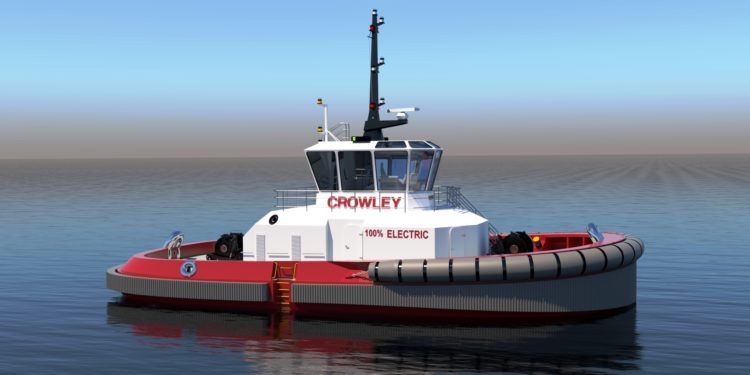Crowley Engineering Services has completed the design of the first fully electric U.S. tugboat with autonomous technology — providing operators a sustainable and high-performing solution for ship assist and harbor services in any port.
The Crowley design, powered by the expertise of recently integrated subsidiary Jensen Maritime, leverages a large electric battery system and power saving technology to operate in a fully electric mode while producing zero air emissions or greenhouse gases. The 82-foot tug will provide 70 short tons of bollard pull, featuring an Azimuthing drive propulsion system with two 1,800 kW motors and a 6 MWh battery.
Electric Tug offers full customization
The design also supports fully customizable features to meet the vessel design requirements with the future in mind. The platform design can be adjusted for alternate power capacities suitable for a standard hybrid framework if desired. The fully modular batteries allow for upgrades as electric technology changes. In addition, Crowley has developed an onshore charging station to fully support charging and reliable performance at the home port.
Ray Martus, vice president, Crowley Engineering Services said “Crowley’s design provides operators the tugboat solution to continue serving ships quickly and powerfully, while reducing their environmental impact by eliminating a carbon footprint. This new design sets the standard for innovation by showing that sustainability and power can work together seamlessly in our maritime industries.”
With no exhaust stack, the tug has 360 degrees of visibility from the pilot’s station, allowing the operator to see without obstruction. The electric tug has also been designed for future autonomous operation to increase the safety and efficiency of the operation including integrated automation and control systems. The intelligent maneuvering and control system offers more efficient vessel operations and allows masters to focus holistically on the overall control and positioning of the vessel in increasingly busy harbors.
Credit: Crowley

































